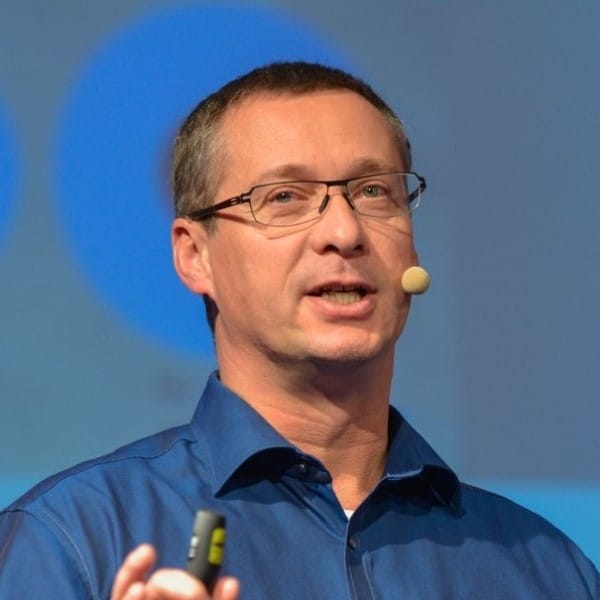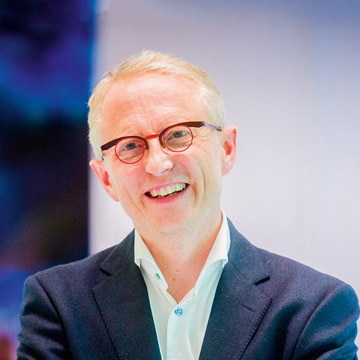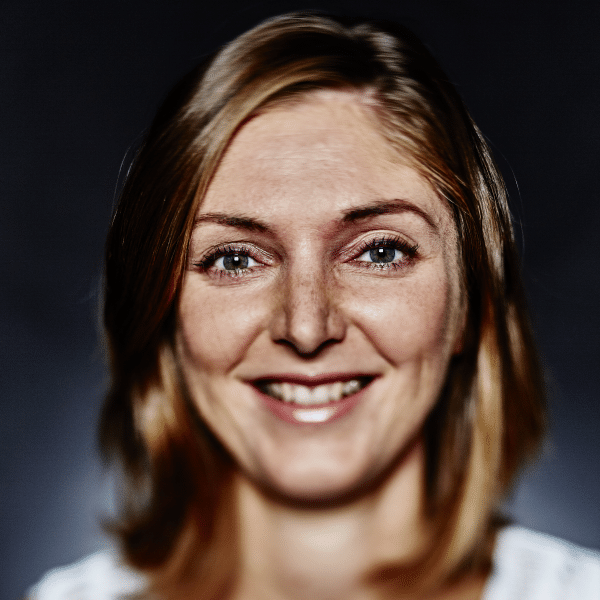Challenges & opportunities
Making digital transformation work for the benefit of all
Digital transformation is happening all around us at an exponential rate. It is crucial to understand the opportunities and challenges for the developments that are going on, and to make sure that the related transitions happen in ways that leave no one behind. If we manage to make these transitions work for the benefit of all citizens, we will achieve the SDGs.
Conference programme
ICT sessions
-
DEEP DIVE SESSIONDigital technologies for lifelong learning11:30 - 13:00
-
THEMATIC OPENING SESSIONDigital technologies for circular value chains15:30 - 17:00
-
DEEP DIVE SESSIONDigital revolution and social technologies for pandemic control and social resilience17:00 - 18:30
-
DEEP DIVE SESSIONDigital technologies and novel data sources17:30 - 19:00
Education ICT
Deep dive session
Digital technologies for lifelong learning
26/10/2020, 11:30 - 13:00
As the capacity to innovate is increasingly becoming a key driver of economic and social development, employees continuously need to adapt to dynamic and fast-changing working conditions. Occupational and technical skills are, therefore, no longer sufficient. In addition to job-specific technical skills, employees need to have strong transversal and foundation skills. These include the skills to learn fast, adapt to change and manage business. Enterprises need to foster lifelong learning, making the best possible use of what digital technologies have to offer.
Chaired by

Jan De Groof
College of Europe
Professor
Jan De Groof is professor at the College of Europe (Bruges, Belgium) and at Tilburg University (the Netherlands), at the National Research University – Higher School of Economics in Moscow and extraordinary professor at the Edu-HRight Research Unit, North West University (South Africa) and previously at Ghent University (Belgium), teaching international and comparative educational law and policy. His academic work and numerous publications have covered many education rights-related issues but also constitutional and human rights law. His doctoral students, coming from several continents, focus on various aspects of the Right to Education.
De Groof has been visiting professor and/or taught at universities worldwide. He is founder and president of the European Association for Education Law and Policy (ELA) and co-founded the Russian and South-African Education Law Associations. He chaired – at the request of all regional Education Law and Policy Associations – the two World Conferences on Human Dignity, the Right to and Rights in Education (Amsterdam/The Hague, Brussels). De Groof holds the UNESCO Chair for the Right to Education and is former UNESCO Chargé de Mission on the Right to Education (2007-2010). He was and remains intensively involved in consultancy for national parliaments, governments and stakeholders, not the least in time of transition (Russia: 1990-2000, South Africa: 1995-2002), often in cooperation with multilateral organisations. He is member of the ‘Council of Senior Advisors’ of the International Association of University Presidents (IAUP), accredited to the UN, and vice-chair of the Legal Committee of EQAR. Furthermore, De Groof has been Team Leader of the EU-Project ‘The Rule of Law – Curriculum Reform of Legal Studies in Universities, especially in Iraq’.
In 2015 he received an Honorary Doctorate from the University of Pretoria (South Africa), giving “recognition to his significant role as leader in various fields of education and law, his global influence in education law during the late 20th and the 21th century, as well as his assiduous campaigning for justice and good governance in education,” and also chaired the Law Sessions in the framework of the World Congress on Catholic Education (Vatican, November 2015).
Lifelong learning: education for all ages
The rate of technological evolution both in everyday life and in the workplace makes it in many cases not possible for a traditional educational model to equip students with skills that will last a lifetime. At the very best, they should equip students with the ability to learn new skills throughout their life. That raises the question however of how such new skills can best be acquired.
Online learning is undoubtedly a promising avenue as demonstrated by the emergence of MOOCs (Massive Open Online Courses) and other open courseware offerings. However, there are difficulties in maintaining engagement in such portals and courses. Perhaps the greatest challenge for lifelong learning and the potential contribution of enterprises is how to render learning online both enjoyable and effective.
This is challenging for a whole range of reasons, starting with the need to elicit what topic might be of interest and use to the learners. In addition, it is indispensable to determine the gaps in their knowledge, identify the materials that are most likely to engage them and assess their progress. Finally, assistance should be provided either through additional materials or from other learners when difficulties are detected.

John Shawe-Taylor
University College, London
Director Centre for Computational Statistics and Machine Learning
John Shawe-Taylor, UNESCO Chair in Artificial Intelligence (AI), is a professor at University College London (United Kingdom) where he is Director of the Centre for Computational Statistics and Machine Learning (CSML). His main research area is Statistical Learning Theory, but his contributions range from Neural Networks to Machine Learning to Graph Theory.
John Shawe-Taylor obtained a PhD in Mathematics at Royal Holloway, University of London in 1986. He subsequently completed an MSc in the Foundations of Advanced Information Technology at Imperial College. He has coordinated a number of European wide projects investigating the theory and practice of Machine Learning, including the NeuroCOLT projects, and is currently the scientific coordinator of a Framework VI Network of Excellence in Pattern Analysis, Statistical Modelling and Computational Learning (PASCAL).
Digital technology innovation in taking forward education in India
The Covid-19 pandemic has forced educational institutions across the world to develop innovative methods of ensuring provision of quality education to students. In the Indian context, both national and state educational institutions have been catalyzed to transitions to digital modes of education at the school and university level. This movement has further increased access to academic resources amongst students and the general public, thereby promoting lifelong learning opportunities amongst them. It has led to innovations such as development of android apps that make it easier to access course material or even undertake online tutorials. Advent of online learning platforms is changing the perception and the mechanics of education in a way that one can learn without going into a formal and a physical system. Now even formal courses are being made available 24X7 on online platforms. Thus digital revolution is pushing new frontiers and introducing new dimensions that can make formal and informal learning a life-long possibility.

Shazia Azmat Fatima Rehman
Government of Delhi
Change-Maker in Education
Shazia A.F Rehman completed her master’s in economics from the Barcelona Graduate School of Economics, she is an alumni of Sri Venkateswara College, Delhi University and Delhi Public School, Noida. She is currently working as a Change-Maker in Education fellow with the Government of Delhi and contributing to the digital interventions and innovation in Education in Delhi.
Shazia has been involved in public policy projects and research in the development sector and has experience in working with prominent institutions like the University of Oxford, China Europe International Business School (CEIBS), Brookings India and the Centre for Advanced Studies in Policy Research (CASPR). She has gained international exposure while she was based in Kampala, Uganda to work on the research collaboration between the Uganda Revenue Authority (Ministry of Finance, Uganda) and the University of Oxford. Her research interests lie in the fields of development economics, public policy and governance. She endeavors to contribute to efficient policy formulation and implementation in India.
Readiness strategies for digital lifelong learning
Lifelong learning requires foundational skills to keep learning and adapting throughout life, to be developed in schools at early ages. Then, it also entails universal access to adult learning, for those already in the labour market to up- and re-skill and stay employable, especially if low qualified. Firms can play a key role to facilitate learning opportunities for their employees and new entrants.
Providing that quality assurance mechanisms are in place, education and training providers in the private sector can develop a relevant offering for this and uptake a business opportunity. Digital technologies have a great potential for lifelong learning, keeping in mind that sustainable technological solutions have to be inclusive, at a territorial and individual level, and that technology represents only one of many dimensions for digital learning.

Sara Baiocco
Centre for European Policy Studies
Researcher
With a background in development economics and an MSc in local economic development at the London School of Economics, Sara Baiocco decided to focus her PhD on labour and the impact of digitalisation on employment.
Since September 2018, she is a researcher in the Jobs and Skills Unit of the Centre for European Policy Studies (CEPS). At CEPS, Sara continues her policy-oriented research on skills, employment and working conditions in the continuously changing world of work.
Connecting passion with profession or why I will never retire …
What is the canvas for continuous and lifelong learning? What role does life expectancy play? Why should countries, businesses and other organizations consider it their responsibility to care for their people’s continuous and lifelong learning? How does Melexis go about in stimulating people towards continuous learning? What’s in it for me, really? And some myth busting …

Françoise Chombar
Melexis
CEO Melexis & President Flanders STEM-Platform
Françoise Chombar is co-founder and CEO of Melexis. Melexis designs and develops innovative microelectronic solutions for the automotive industry, and is also growing in the smart appliance, home automation, industrial and medical equipment sectors. Françoise Chombar is a member of the board of directors of Umicore, a global materials technology and recycling group. She is also a member of the board of directors of Soitec, an international semiconductor materials manufacturer.
Françoise Chombar is chairwoman of the STEM platform, an advisory board of the Flemish Government that encourages young people to follow a STEM (Science, Technology, Engineering or Mathematics) education. Françoise Chombar was mentor for 17 years of the SOFIA network, a coaching, networking and training program for female entrepreneurs and women in management. As a ‘STEMinist’, she advocates more STEM and more inclusiveness and gender balance. That commitment is driven by her deep belief in its positive social impact.
In 2012, Françoise Chombar received the title of Honorary Ambassador for Applied Linguistics from UGent. She won the Vlerick Award in 2016 and the Global Prize for Women Entrepreneurs in 2018. That year she was also elected ICT Personality of the Year by Datanews and appointed Science Fellow at the VUB. In July 2019, she received the Honorary Sign of the Flemish Community.
SusTech4Africa: business growth support by and for talents
Micro, Small and Medium Enterprises (MSMEs) are the main drivers of job creation and economic growth in developing countries. Creating opportunity for MSMEs in these countries is an important way to promote development and reduce poverty.
Entrepreneurs for Entrepreneurs (OVO) facilitates socio-economic initiatives in low- and middle-income countries. It brings companies and entrepreneurs in Belgium into contact with initiatives of this nature. OVO encourages collaboration through financing and accessibility to expertise.
OVO has developed a Business Growth Support value chain based on intercultural and intergenerational interaction with great emphasis on mutual knowledge transfer. This is a means by which expertise, knowledge, skills and capabilities are transferred from a knowledge base to those in need of that knowledge. The purpose of the knowledge transfer is to catalyse and facilitate sustainability, growth and innovation of the private sector in Africa and Belgium.

Björn Macauter
Entrepreneurs for Entrepreneurs
General Manager
Since 2015, Björn Macauter has been working as General Manager at Entrepreneurs for Entrepreneurs. He holds a master’s degree in Applied Economic Sciences, a degree in International Politics and a master’s degree in Public Management. He started his career at Amnesty International Flanders as coordinator of political affairs. At the Regional Economic and Social Consultation Committee Mechelen, he experienced the strength as well as the pitfalls of intersectoral cooperation.
In 2012, he took up the challenge of developing LAScentrum, a training centre for welding techniques, into a self-supporting social enterprise. In less than 3 years, he succeeded in this goal by using his entrepreneurial skills and gathering the right people around him.
Within Entrepreneurs for Entrepreneurs he has paid a lot of attention to the further development of Entrepreneurs for Entrepreneurs as a networked organization, the effective deployment of voluntary experts, increasing the mutual transfer of knowledge between African and Belgian companies and entrepreneurs, and involving young people – the entrepreneurs of the future.
Dare to be CEO of your own life
How much longer do you want to put it off? How long can you manage your organisation, your team or your life without making some fundamental change? Above all, how long can you avoid being overtaken by others because you stick to your method and your comfort zone?
Our society is changing and crying out for a new model. We are living in a digital age where everyone and everything is connected, where competition no longer comes from the sector, and customers, users and citizens are in the driver’s seat. Data are gold, and sharing is the new having. The digital age requires a new approach and a new model.
Dare to help build a different business world, with a balance between short and long term results, but just as much to help make a different society that is ready for the next generation.
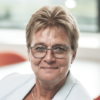
Saskia Van Uffelen
Digital Agenda
Digital Champion of Belgium
Saskia Van Uffelen has been working in the Information and Communication Technology (ICT) sector for over 25 years. She has held national and international sales and marketing functions in leading companies such as Xerox, Compaq, HP, Arinso, Bull and Ericsson. As Corporate Vice President at GFI, she currently oversees the development of the BeNeLux region for this French ICT group.
In 2012, the Federal Minister of Economic Affairs appointed Saskia Van Uffelen as the ‘Digital Champion’ representing Belgium at the European Commission. To stimulate the roll-out of the Digital Agenda in Belgium, she sensitizes all parties involved in 5 areas: digital economy, digital government, digital infrastructure, digital security and digital skills.
As a role model, Saskia Van Uffelen received various awards including ICT Woman of the Year (2011, Data News), Inspiring Woman in Science, Technology and Research (2013, Luxembourg), the Golden Spur for Economic Excellence (2016, Flanders) and the Etion Leadership Award 2019. In 2019, she was also nominated Belgian Manager of the Year.
Circular Economy ICT
Thematic session
Digital technologies for circular value chains
26/10/2020, 15:30 - 17:00
Digital technologies enable new circular value chains. Hence, digital solutions provide an opportunity for capitalising on existing circular economy solutions and capturing additional value. That creates a need for new circular business models such as Products as a Service (PaaS), sharing platforms and peer-to-peer interactions. Although there is a general awareness about the need for a digital circular economy, too little connections exist between the digital and circular economy communities. Debate and interaction between both communities is therefore essential to start building bridges and creating a solid basis for a common vocabulary.
Chaired by

Karl Vrancken
VITO
Research Manager Sustainable Materials
Karl Vrancken is Research Manager Sustainable Materials Management at VITO. He is responsible for the strategic management of VITO’s Materials programme. He has a part-time assignment as professor at the University of Antwerp (Department of Bio-engineering), where he teaches sustainable resources management.
Karl has broad experience as a researcher and project manager in projects on sustainability assessment and transition, waste management and treatment, secondary raw materials, best available techniques (BAT) and integrated pollution prevention and control. He has also worked as a Detached National Expert with the European IPPC Bureau in Seville (Spain), where he was the author of the BAT Reference Document for the Foundries sector.
Karl is the initiator and chairman of the European Circular Economy Research Alliance (ECERA) and strategic advisor of the European Topic Centre on Waste and Materials for a Green Economy, a consortium of European organisations working in partnership with the European Environment Agency (EEA). During its start-up phase, he was interim Chief Operations Officer to the Knowledge and Innovation Community (KIC) EIT RawMaterials that was founded by the European Institute of Innovation and Technology (EIT). He is an expert speaker on circular economy in the media and at various national and international conferences.
Digitalis: How digital technology can build a sustainable society
Wherever people live in Europe, they are all citizens of Digitalis. This new country counts 4 billion inhabitant who are all interconnected through the Internet. Any time soon, everybody on this planet will be connected and have access to information, education, healthcare and culture.
However, this requires us to reinvent what we have built so far – using new available technologies. But whereas previous industrial revolutions depended on raw materials such as coal, oil and steel, this new digital revolution is entirely based on knowledge. As knowledge becomes abundantly available to everyone, this new digital revolution is ultimately based on us. It is in our hands to build a more sustainable society.

Thierry Geerts
Google Belgium and Luxemburg
CEO
After Thierry Geerts graduated as Solvay Business Engineer at the Vrije Universiteit Brussel in 1989, he started working as an auditor for Coopers & Lybrand (now PWC). Quite soon, his passion for media, online marketing and innovation led him to management and board positions at various companies, including Corelio Publishing, Radio Nostalgie, Clickx and Passe-Partout. In 2008, he became CEO of Corelio Business Development and Arkafund.
Since 2011, Thierry Geerts is Country Director of Google Belgium-Luxembourg, which positions him in the heart of the digital revolution, marketing and innovative entrepreneurship. He’s a member of the “Digital Minds for Belgium” and “AI4Belgium” Expert group of Belgium’s Deputy Prime Minister De Croo, a member of “Le Conseil du Digital” of the Walloon Minister of Economy and a member of the board of IAB Europe.
Circular Economy 4.0: How digitalisation can boost the circular economy
Circular Economy shows that digitalisation helps overcome existing information gaps, enabling to make better informed decisions and create new markets with concrete applications in mechanical engineering. The most important levers of digitalisation that are relevant to the circular economy are the result of improved product management, optimised product use and performance, enabling to connect and close material and data flows. As digital solutions connect to the 5 R’s of the Circular Economy – Repair, Reuse, Remanufacture, Recycle, Rethink – they can create new conditions and opportunities for new circular business models.
Potential rebound effects and side effects, however, imply that not every action taken to achieve digitalisation will necessarily be meaningful in terms of sustainability, as specific use cases from the mechanical engineering perspective illustrate.

Frederike Krebs
Mechanical Engineering Industry Association
Adviser Technical, Environmental & Sustainability Affairs
Since 2017, Frederike Krebs is following policy developments in EU technical, environmental and sustainability affairs for VDMA’s European Office in Brussels. Frederike is responsible for representing VDMA’s interests in these policy fields towards EU policy- and decision-makers. At the same time, she has an internal advisory role in informing member companies as to which policy developments might affect their daily business and to create common positions on issues of interest.
The Smart Circular Economy – a common framework across digital and circular disciplines
Digital technologies, such as IoT, Big Data and Artificial Intelligence, are considered essential enablers of the circular economy. However, little systematic guidance has been provided so far on how digital technologies can be applied to capture circular economy’s full potential for improved value creation and capture.
The Smart Circular Economy framework addresses this gap. This framework synthesizes organising principles for understanding the relationship between digitalisation and circular economy, and describes the business analytics capabilities needed for their operationalisation. As such, the framework is useful to create a common language for aligning activities across the boundaries of digital and circular disciplines. It is, also helpful to identify the gap between the current and the required digital maturity for various circular strategies and identify which strategic initiatives are needed to close it. In addition to this, the framework organises a database of 100 example smart circular strategies.

Eivind Kristoffersen
SINTEF
Research scientist
Eivind Kristoffersen is a 27-year old research scientist at SINTEF. He is a PhD candidate at NTNU and an international ISO expert contributing to the new Circular Economy ISO/TC 323 standard.
With a background as an IT solution architect and a mechanical engineer, Eivind is convinced that the sustainable transition must be a digital one. In his own research and doctoral studies, he is particularly interested in how we can create new and smart circular economy solutions through the increased use of artificial intelligence. His research therefore focuses on bridging the gap between the digital world and sustainability through the strategic use of information systems and IT business value for circular economy. As the work package leader of a large 3-year Nordic action research project, he combines first-hand industrial insights from leading Nordic companies with novel research frameworks and tools.
Q&A – digital technologies for circular value chains
Circular Economy ICT
Deep dive session
Digital technologies and novel data sources
26/10/2020, 17:30 - 19:00
Circular business models have a stronger need for data compared to linear models. Digital technologies, on the other hand, enable access to a broad range of novel data sources and provide transparent insights into the value chain. That creates opportunities for new business approaches and circular management of materials and products. We need to think beyond current needs, however, exploring options enabled by digital technologies such as artificial intelligence, big data, blockchain, and earth observation.
Chaired by

Karl Vrancken
VITO
Research Manager Sustainable Materials
Karl Vrancken is Research Manager Sustainable Materials Management at VITO. He is responsible for the strategic management of VITO’s Materials programme. He has a part-time assignment as professor at the University of Antwerp (Department of Bio-engineering), where he teaches sustainable resources management.
Karl has broad experience as a researcher and project manager in projects on sustainability assessment and transition, waste management and treatment, secondary raw materials, best available techniques (BAT) and integrated pollution prevention and control. He has also worked as a Detached National Expert with the European IPPC Bureau in Seville (Spain), where he was the author of the BAT Reference Document for the Foundries sector.
Karl is the initiator and chairman of the European Circular Economy Research Alliance (ECERA) and strategic advisor of the European Topic Centre on Waste and Materials for a Green Economy, a consortium of European organisations working in partnership with the European Environment Agency (EEA). During its start-up phase, he was interim Chief Operations Officer to the Knowledge and Innovation Community (KIC) EIT RawMaterials that was founded by the European Institute of Innovation and Technology (EIT). He is an expert speaker on circular economy in the media and at various national and international conferences.
Artificial Intelligence and remote sensing for marine plastics detection and identification
Marine plastics have become a severe environmental problem, with a considerable negative impact on marine biodiversity and human health. To act upon this problem, it is essential to have a better view on the actual problem and have standardised methods for following up implemented measures. Remote observations, either from satellites, drones or fixed cameras can be used to identify plastic litter exploiting spectral information in the images and using Artificial Intelligence techniques.

Els Knaeps
VITO
Expert
Els Knaeps graduated from the university of Leuven (BE) and Purdue (US) in 2005. She holds a master’s degree in Geography and a second master’s degree in GIS and Remote Sensing. Els started her professional career as a researcher at VITO and gained a wide experience in coastal and inland water quality monitoring, with a focus on atmospheric correction, suspended sediment retrieval in turbid and highly turbid waters and marine plastics monitoring. In 2008, Els became Project Manager Water and Coastal Applications within the VITO Remote Sensing Unit.
Why organizations should consider data-driven and user-centric models ?
More than 10 years ago, Adobe drove its own transformation, switching from a licensing model to a subscription model. We will see how such a transformation involves deep organization, technology and business model changes to succeed and what the benefits are.

Paul Corman
Adobe
Digital Strategist
Formerly a Senior Consultant in Digital Transformation at Thales, and now a Digital Strategist at Adobe, Paul Corman leverages Business, Marketing and IT expertise to advise top-level management about Digital Strategy.
Because today Digital can’t be considered without holistic consideration, Paul’s purpose is to help clients to achieve business impact through digital transformation and build a strategy to capitalize upon digital opportunities and existing technologies. To achieve that, organisations need to offer a better experience to their customers and business users, with technology as an enabler.
Circular Economy accelerated by Digital Transformation: SAP’s Point of View
SAP is the market leader in enterprise application software, helping companies of all sizes and in all industries run at their best: 77% of the world’s transaction revenue touches an SAP system. Raik will present the current software technology trends at waste, recycling, and environmental services companies. SAP’s goal is to help such companies so that we accelerate the transformation to a Circular Economy.

Raik Kulinna
SAP
Global Lead for Waste, Recycling, and Environmental Services
Raik Kulinna is globally responsible for the solution management for waste, recycling, and environmental services companies at SAP. Furthermore, he drives SAP’s innovation technologies for utilities and waste & recycling companies.
Digital platforms and industrial ontologies for circular economy challenges: MANU-Square H2020 platform perspective
The MANU-SQUARE (MANUfacturing ecoSystem of QUAlifiedResources Exchange) project creates a European platform-enabled ecosystem acting as a virtual marketplace to achieve optimal matching between available manufacturing capabilities to production needs. This platform boosts and optimises the creation of innovative, sustainable and circular business networks, reintroducing and optimising the loop of unused resources that would be wasted otherwise. This platform features semantic matchmaking between supply and demand, based on the use of industrial ontologies, semantic descriptions of manufacturing resources, and inference rules. As a result, this platform overcomes the shortcomings of traditional approaches for matching supply and demand of manufacturing resources. Among the platform’s many advantages in real-world scenarios are manufacturing knowledge sharing, and the development and use of industrial ontologies.

Marko Vujasinovic
Innova
Senior consultant
Marko Vujasinovic (PhD) is a senior consultant at Innova Srl Rome and is specialised in technologies and platforms for eHealth and eManufacturing. Marko has nearly twenty years of international experience in applied R&D. His most recent experience includes technical contributions in the EU-funded projects NIMBLE (Collaboration Network for Industry, Manufacturing, Business and Logistics in Europe), MANU-SQUARE (MANUfacturing ecoSystem of QUAlified Resources Exchange) and DigiPrime (Digital Platform for Circular Economy in Cross-sectorial Sustainable Value Networks). Before Marko joined Innova, he held a guest researcher position at the National Institute of Standards and Technology (United States), where he worked in the fields of enterprise systems interoperability and manufacturing systems integration, based on the use of ontologies and other semantic technologies.
Q&A – digital technologies and novel data sources
Circular Economy ICT
Thematic session
Smart connections between the Green Deal and the European Industrial Strategy – In collaboration with CSR Europe
28/10/2020, 11:30 - 13:00
The COVID-19 crisis has shown that digital technologies will play a central role in the future of our society. In this closing session, we will discuss how digitalisation will enable a circular economy and a more sustainable society. We look in particular at the connections between the European Green Deal and the European Industrial Strategy. Both key policy documents for the post-corona period are driven by the Circular Economy Action Plan and the Digital Europe Programme. Key players from the industry and the European Commission will enter into debate and present their insights.
Chaired by

Karl Vrancken
VITO
Research Manager Sustainable Materials
Karl Vrancken is Research Manager Sustainable Materials Management at VITO. He is responsible for the strategic management of VITO’s Materials programme. He has a part-time assignment as professor at the University of Antwerp (Department of Bio-engineering), where he teaches sustainable resources management.
Karl has broad experience as a researcher and project manager in projects on sustainability assessment and transition, waste management and treatment, secondary raw materials, best available techniques (BAT) and integrated pollution prevention and control. He has also worked as a Detached National Expert with the European IPPC Bureau in Seville (Spain), where he was the author of the BAT Reference Document for the Foundries sector.
Karl is the initiator and chairman of the European Circular Economy Research Alliance (ECERA) and strategic advisor of the European Topic Centre on Waste and Materials for a Green Economy, a consortium of European organisations working in partnership with the European Environment Agency (EEA). During its start-up phase, he was interim Chief Operations Officer to the Knowledge and Innovation Community (KIC) EIT RawMaterials that was founded by the European Institute of Innovation and Technology (EIT). He is an expert speaker on circular economy in the media and at various national and international conferences.
Research and innovation challenges for Europe
Jean-Eric Paquet will give an introductory presentation highlighting how the Green Deal and the Industry Strategy are interlinked. He will identify how the Green Deal Call of the European Commission aims to establish a link between the digital and the circular agendas, and which Research & Innovation challenges have been identified to bridge the digital-circular gap.

Jean-Eric Paquet
DG R&I
Director-General
ECERA white paper on digital circular economy
Holger Berg will present the ECERA white paper on digital circular economy (10 min). Key messages of this white paper include
- Circular economy provides a sustainable context and target to the digital revolution.
- Circular economy needs to scale up, and this requires a change in business models, enabled by digital technologies: sharing, leasing, life-time extension, remanufacturing. This also requires a dematerialisation based on services enabled by the digitalisation of processes, products and interactive platforms.
- Investment money from the EU reconversion strategy needs to be targeted at scaling up the digital circular economy.

Berg Holger
Wuppertal Institute
Co-head research-unit digital transformation
Holger Berg is Co-Head of the Digital Transformation Research Unit in the Department of Circular Economy at the Wuppertal Institute for Climate, Environment and Energy GmbH. His main interests relate to the possibilities and influences of digital transformation on sustainable development, especially with regard to a digital circular economy. He is leading projects on the application of digital instruments in recycling and waste management, on technology assessment and on policy design for a sustainable digital transformation.
Holger Berg supports various national and international organisations as an expert. He teaches business ethics and acts as a coach for start-ups.
Panel discussion – Industry approaches for digital circular economy

Jean-Eric Paquet
DG R&I
Director-General

Berg Holger
Wuppertal Institute
Co-head research-unit digital transformation
Holger Berg is Co-Head of the Digital Transformation Research Unit in the Department of Circular Economy at the Wuppertal Institute for Climate, Environment and Energy GmbH. His main interests relate to the possibilities and influences of digital transformation on sustainable development, especially with regard to a digital circular economy. He is leading projects on the application of digital instruments in recycling and waste management, on technology assessment and on policy design for a sustainable digital transformation.
Holger Berg supports various national and international organisations as an expert. He teaches business ethics and acts as a coach for start-ups.

Bernd Schäfer
EIT RawMaterials
CEO
Bernd Schäfer is the CEO and Managing Director of EIT RawMaterials, the world’s leading innovation community in the raw materials sector initiated and funded by the EIT (European Institute of Innovation and Technology), a body of the European Union. Bernd Schäfer has extensive industry and business experience.
Prior to joining EIT RawMaterials, he was over 20 years in Senior Management positions in the Aluminium industry. In his most recent role, Bernd was the CEO and Managing Director at apt Group, a leading European supplier of extruded, anodised and processed aluminium products. Prior to that, he was the VP Commercial, Global Commercial Transportation and Industrial at Alcoa. His area of accountability included global market responsibility and the execution of the strategic growth agenda, as well as the implementation of the innovation and technology roadmap in close cooperation with R&D.
Until he joined EIT RawMaterials, Bernd Schäfer was Member of the Executive Committee and Chairman of the Semi Finished Products Industry with the “Gesamtverband der Aluminiumindustrie” (the trade association of the aluminium industry) and Member of the Board with the “Wirtschaftsvereinigung Metalle‘ (the association of metal producing companies in Germany).
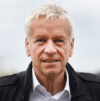
Henning Ohlsson
Epson
Director Sustainability
Henning Ohlsson is Sustainability Director at Epson, a company developing printing, projection, wearable and robotics technologies that help customers meet their sustainability targets. As Sustainability Director, Henning Ohlsson aims at reinforcing the environmental benefits of the Epson product range, ensuring their regulatory compliance, as well as leading local and regional initiatives that promote the company’s and its employees’ commitment to sustainability values and environmental responsibilities.

Ernesto Ciorra
ENEL
Chief Innovability Officer
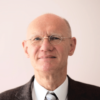
Walter Weigel
European Research Institute, Huawei
Vice-President of the European Research Institute
The European Raw Materials Alliance

Bernd Schäfer
EIT RawMaterials
CEO
Bernd Schäfer is the CEO and Managing Director of EIT RawMaterials, the world’s leading innovation community in the raw materials sector initiated and funded by the EIT (European Institute of Innovation and Technology), a body of the European Union. Bernd Schäfer has extensive industry and business experience.
Prior to joining EIT RawMaterials, he was over 20 years in Senior Management positions in the Aluminium industry. In his most recent role, Bernd was the CEO and Managing Director at apt Group, a leading European supplier of extruded, anodised and processed aluminium products. Prior to that, he was the VP Commercial, Global Commercial Transportation and Industrial at Alcoa. His area of accountability included global market responsibility and the execution of the strategic growth agenda, as well as the implementation of the innovation and technology roadmap in close cooperation with R&D.
Until he joined EIT RawMaterials, Bernd Schäfer was Member of the Executive Committee and Chairman of the Semi Finished Products Industry with the “Gesamtverband der Aluminiumindustrie” (the trade association of the aluminium industry) and Member of the Board with the “Wirtschaftsvereinigung Metalle‘ (the association of metal producing companies in Germany).
Closing debate: strategies for a digital circular economy

Jean-Eric Paquet
DG R&I
Director-General

Berg Holger
Wuppertal Institute
Co-head research-unit digital transformation
Holger Berg is Co-Head of the Digital Transformation Research Unit in the Department of Circular Economy at the Wuppertal Institute for Climate, Environment and Energy GmbH. His main interests relate to the possibilities and influences of digital transformation on sustainable development, especially with regard to a digital circular economy. He is leading projects on the application of digital instruments in recycling and waste management, on technology assessment and on policy design for a sustainable digital transformation.
Holger Berg supports various national and international organisations as an expert. He teaches business ethics and acts as a coach for start-ups.

Bernd Schäfer
EIT RawMaterials
CEO
Bernd Schäfer is the CEO and Managing Director of EIT RawMaterials, the world’s leading innovation community in the raw materials sector initiated and funded by the EIT (European Institute of Innovation and Technology), a body of the European Union. Bernd Schäfer has extensive industry and business experience.
Prior to joining EIT RawMaterials, he was over 20 years in Senior Management positions in the Aluminium industry. In his most recent role, Bernd was the CEO and Managing Director at apt Group, a leading European supplier of extruded, anodised and processed aluminium products. Prior to that, he was the VP Commercial, Global Commercial Transportation and Industrial at Alcoa. His area of accountability included global market responsibility and the execution of the strategic growth agenda, as well as the implementation of the innovation and technology roadmap in close cooperation with R&D.
Until he joined EIT RawMaterials, Bernd Schäfer was Member of the Executive Committee and Chairman of the Semi Finished Products Industry with the “Gesamtverband der Aluminiumindustrie” (the trade association of the aluminium industry) and Member of the Board with the “Wirtschaftsvereinigung Metalle‘ (the association of metal producing companies in Germany).

Henning Ohlsson
Epson
Director Sustainability
Henning Ohlsson is Sustainability Director at Epson, a company developing printing, projection, wearable and robotics technologies that help customers meet their sustainability targets. As Sustainability Director, Henning Ohlsson aims at reinforcing the environmental benefits of the Epson product range, ensuring their regulatory compliance, as well as leading local and regional initiatives that promote the company’s and its employees’ commitment to sustainability values and environmental responsibilities.

Ernesto Ciorra
ENEL
Chief Innovability Officer

Walter Weigel
European Research Institute, Huawei
Vice-President of the European Research Institute
Closing remarks – strategies for a digital circular economy

Karl Vrancken
VITO
Research Manager Sustainable Materials
Karl Vrancken is Research Manager Sustainable Materials Management at VITO. He is responsible for the strategic management of VITO’s Materials programme. He has a part-time assignment as professor at the University of Antwerp (Department of Bio-engineering), where he teaches sustainable resources management.
Karl has broad experience as a researcher and project manager in projects on sustainability assessment and transition, waste management and treatment, secondary raw materials, best available techniques (BAT) and integrated pollution prevention and control. He has also worked as a Detached National Expert with the European IPPC Bureau in Seville (Spain), where he was the author of the BAT Reference Document for the Foundries sector.
Karl is the initiator and chairman of the European Circular Economy Research Alliance (ECERA) and strategic advisor of the European Topic Centre on Waste and Materials for a Green Economy, a consortium of European organisations working in partnership with the European Environment Agency (EEA). During its start-up phase, he was interim Chief Operations Officer to the Knowledge and Innovation Community (KIC) EIT RawMaterials that was founded by the European Institute of Innovation and Technology (EIT). He is an expert speaker on circular economy in the media and at various national and international conferences.
Circular Economy ICT
Deep dive session
Connecting digital and circular strategies
27/10/2020, 15:15 - 16:30
As functional electronics integrate digital technologies with cognitive functions, they enable a shift from purely physical integration to functional integration. Applications include the tracking and tracing of products, and information collection on the use and wear of materials. As such, that provides the technological basis for new circular business models. Meanwhile, we also need to consider the impact of functional electronics on product chains, in terms of recyclability, energy and resource needs, and dispersion of materials.
Chaired by

Jérôme Gavillet
CEA-Liten
European Programme Manager
Jérôme Gavillet graduated at l’Institut National des Sciences Appliquées (INSA) in Lyon and received his PhD on material physics & surface processing from l’Ecole des Mines de Nancy in 1996. As a researcher, he worked on hydrogen embrittlement of stainless steels for the oil & gas industry at the Federal University of Rio de Janeiro, on zircaloy alloy coatings for the French nuclear industry and on copper interconnects for the semiconductor industry at the University of York.
Jérôme Gavillet spent 7 years in microelectronics, working as a process engineer for equipment suppliers in Cardiff (UK), Sunnyvale (US) and Grenoble (F). He joined CEA-Liten in 2005 as a project manager in the field of Renewable Energy and Nanomaterials, working on surface energy and thermal management topics. He has authored 10 patents and over 40 publications.
Since 2012, he works as a European program manager, contributing to the management of CEA-Liten’s EU projects portfolio and developing business opportunities in the fields of materials, renewable energy, energy storage, energy efficiency and ICT, with a strong focus on Organic & Printed Electronics.
He is currently coordinating the ‘SmartEEs’ Digital Innovation Hub, a Smart Anything Everywhere European initiative to promote the adoption and transformation of Organic & Printed Electronics into business visions & concrete market cases. He is a Technical Session Chair of the LOPEC conference, the leading international event for printed electronics.
Functional Electronics as an Enabler for a Digital Circular Economy
Functional electronics enables ubiquitous sensing, autonomous operation of machines, energy efficiency and autonomy. First and foremost, however, it contributes to circular economy by economising on resources, materials, and energy use, and by taking a holistic approach at all steps of the value chain, from design to recycling or re-use.
The objectives and main deliverables of the 5E project clearly illustrate the potential of this new concept of functional electronics, and has resulted in a joint vision of the 5E consortium partners on the role of functional electronics as a key enabler for a green digital future.
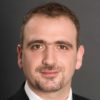
Nicolas Gouze
VDI/VDE-IT
5E Project Coordinator
Nicolas Gouze has an engineer’s degree in optronics from the University Paris XI and studied Innovation Management at the University of Valenciennes (France). Since 2004 he is working with the Future Mobility and Europe Department of VDI/VDE Innovation + Technik GmbH in Berlin.
Nicolas is participating in the strategic activities of the Working Group on Healthy Living of EPoSS, the European Technology Platform for Smart Systems Integration. He is notably contributing to the writing of several strategic papers and roadmaps as well as supporting the integration of (end-)user requirements into Research and Innovation Priorities.
Furthermore, he is involved in several EU-funded Coordination and Support Actions along two major axes: fostering the transfer of innovative technologies into healthcare products and underpinning
digitalisation in a wide range of application sectors.
In this regard he is currently acting as the co-coordinator of the 5E project, which analysed the current European ecosystems in Nanoelectronics, Electronic Smart Systems, and Flexible, Organic and Printed Electronics and developed a joint vision to position electronics as a key enabler for a green digital future.
Printed Electronics as an enabling technology in a circular economy
A circular economy can only be realised through a smart combination of a consistent regulatory framework, convincing business models and enabling technologies. In fact, the three R’s (Reduce, Reuse and Recycle) can only be achieved with the help of new technologies.
In multiple ways, printed electronics could be one of the key technologies contributing to the achievement of more sustainable consumption and production processes. Even if the introduction of printed electronics slightly increases the ecological footprint, this is outweighed by far by the benefits that are realised through the additional functionalities. Those functionalities, for example, help reduce the waste of goods, minimise the loss of goods through tracking and enable reuse by identification.

Michael Korell
OE-A, sustainability Working Group
Project Manager - Intrapreneur
Michael Korell studied chemistry at the Ruhr-Universität Bochum, Germany and business administration at the FernUniversität Hagen. After completing his PhD in physical-organic chemistry, he joined Hüls AG in 1996 as a group leader. He was responsible for the development of industrial production processes of fragrances and agrochemical intermediates. In 1999, he moved to the United States and took on a marketing function for customer synthesis services for the agrochemical industry. After his return to Germany in 2006, he assumed global business responsibility for the Agrochemical Custom Manufacturing product line. In 2008 he became responsible for the global innovation management of the Coating & Adhesive Resins activities of Evonik.
In 2012, Michael Korell won the Intrapreneurship Award of the Coatings & Additives business unit of Evonik Industries AG with an idea to develop and market novel polymer-based energy storage materials. He was given the opportunity to fully concentrate on the realisation of this idea. He has built up a project team in the form of an internal start-up within the strategic innovation unit of Evonik and has recently launched the TAeTTOOz® technology.
Disruptive Technological Innovation and the Digital Circular Economy agenda in the Electronic Waste Management Sector
As the world’s largest multi-national centre of competence regarding operational know-how about the management of waste electrical and electronic equipment (WEEE), the WEEE Forum commissioned the European Policy Centre, a Brussels-based think tank, to undertake novel research into the role of digitalisation in improving WEEE management. In particular, this research looked into making this management more circular in the EU and worldwide, and how these efforts could be supported better through dedicated policies.

Pascal Leroy
WEEE Forum
Director-General
For the past twenty years, Pascal Leroy has worked at an international level in the field of electronic waste management and policies. First, he worked as a chief lobbyist at APPLiA, and since 2007 he is working as Director-General of the WEEE Forum, a worldwide association representing forty producer responsibility organisations.
Together with its members, the WEEE Forum is at the forefront of turning the extended producer responsibility principle into an effective electronic waste management policy approach through its combined knowledge of the technical, business and operational aspects of the collection, logistics, de-pollution, processing, preparing for reuse and reporting of e-waste.
The WEEE Forum’s mission is to be the world’s foremost e-waste competence centre excelling in the implementation of the circularity principle. Pascal Leroy is an expert in communication on complex, supra-national environmental legislation and policy, in particular regarding electronic waste recycling, and environmental challenges.
Q&A – connecting digital and circular strategies
Circular Economy ICT
Deep dive session
Digital twins of biological cycles
27/10/2020, 08:30 - 09:45
Digital technologies are being applied already in farming and biological material cycles. Examples of such applications need to be explored and discussed in more detail to understand how they could be transferred to the technological cycle of materials. In many cases, discussions about circular economy focus on the technological cycle while forgetting about the biological cycle. That needs to be reversed, exploring how digitalisation can link the two wings of the butterfly diagram.
Chaired by

Karl Vrancken
VITO
Research Manager Sustainable Materials
Karl Vrancken is Research Manager Sustainable Materials Management at VITO. He is responsible for the strategic management of VITO’s Materials programme. He has a part-time assignment as professor at the University of Antwerp (Department of Bio-engineering), where he teaches sustainable resources management.
Karl has broad experience as a researcher and project manager in projects on sustainability assessment and transition, waste management and treatment, secondary raw materials, best available techniques (BAT) and integrated pollution prevention and control. He has also worked as a Detached National Expert with the European IPPC Bureau in Seville (Spain), where he was the author of the BAT Reference Document for the Foundries sector.
Karl is the initiator and chairman of the European Circular Economy Research Alliance (ECERA) and strategic advisor of the European Topic Centre on Waste and Materials for a Green Economy, a consortium of European organisations working in partnership with the European Environment Agency (EEA). During its start-up phase, he was interim Chief Operations Officer to the Knowledge and Innovation Community (KIC) EIT RawMaterials that was founded by the European Institute of Innovation and Technology (EIT). He is an expert speaker on circular economy in the media and at various national and international conferences.
Deep learning in deep nets: Helping fish farmers sustainably feed the world
While 70% of the world is covered by water, the oceans provide only 5% of the world’s protein. However, fish farming is the fastest growing sector of food production, especially as IoT computer vision and machine learning software are used to build the next generation of fish farming practices. Real-time fish farming data are not just used to understand fish growth, but also to optimize fish farming operations and provide a more environmentally sustainable source of protein in the long-term.

Bryton Shang
Aquabyte
CEO
Bryton Shang is the founder and CEO of Aquabyte, a Silicon Valley and Norway-based venture-backed company applying machine learning and computer vision to aquaculture fish farming for biomass estimation, sea lice counting, and feed optimization and formulation. Bryton was named to the 2019 Forbes 30 Under 30 in Manufacturing & Industry. Graduating at the top of his engineering class at Princeton University, Bryton has led several venture-backed start-ups. He built deep learning algorithms to diagnose cancer as the CTO of HistoWiz, a biotechnology firm. He also co-founded iQ License, a brand licensing platform, and Nikao Investments, an algorithmic trading firm.
Demands for agriculture in the future: how can digital technology lead to a circular economy?
Today there are several challenges for agriculture. A farmer has to focus on economy, on ecology, decrease the impact on climate change, and increase animal welfare aspects. All these requirements have to be kept in balance. Therefore, farmers can use digital tools to combine modern agriculture and circularity.

Bianca Lind
Veravis
Teamleader Sustainability
Bianca Lind is head of corporate sustainability for AGRAVIS, one of the leading agricultural cooperatives in Germany. She is focusing on the impact of AGRAVIS on sustainability goals and tries to find solutions for the entire value chain. As the former general manager at Bundesverband Rind und Schwein, the German umbrella organization for the cattle and pig industry, she has brought extensive experience in animal production systems, animal welfare, animal breeding, agricultural legislation, and lobbying.
How connectivity enables technologies like Artificial Intelligence to maximize the potential of the Agriculture sector
Agriculture is the oldest industry on earth and one of the most important sectors of our economy. Farmers today are facing some of the biggest challenges in the sector’s history as the global population grows, and more land and water are needed. These challenges come along with labour shortages, climate change, and increasing environmental regulation.
What is urgently needed, is an integrated approach to developing technical, policy and investment conditions to achieve sustainable agricultural development for food security under climate change.
Digital technologies such as Artificial Intelligence (AI), robotics, blockchain, High Performance Computing (HPC), Internet of Things (IoT) and 5G have the potential to increase farm efficiency while improving economic and environmental sustainability.
Smarter, digitally-enabled farming is proving to help farmers achieve more profitability and higher quality yields while increasing resource efficiency and curbing greenhouse gas emissions. IoT-based applications in smart agriculture are designed to enhance productivity. The future of farming lies in the benefits of connecting, collecting and analysing big data to maximize efficiency and increase productivity.

Hui Cao
Huawei
Head of Strategy & Policy
Dr Hui Cao’s broad experience in the telecommunications industry ranges from operations over academic research to sales. He has an in-depth knowledge of market trends, industry challenges, network deployment and technical development.
As head of Strategy & Policy at Huawei’s EU Public Affairs and Communication Office based in Brussels, Dr Hui Cao is responsible for regulatory issues on connectivity and innovative ICT technologies. Prior to this position, Dr Cao was the Network CTO in Huawei Western Europe region with a focus on the latest technologies to explore cost-effective solutions and practices to build an experience-oriented and future-proof broadband network with Simplicity, Automation and Intelligence. He also worked with China Telecom for Broadband network management and development.
Dr Cao obtained his doctoral degree in Electronic Engineering from Oxford Brookes University in the UK.
Q&A – digital twins of biological cycles
Health ICT
Deep dive session
Digital revolution and social technologies for pandemic control and social resilience
26/10/2020, 17:00 - 18:30
During the pandemic, social technologies associated with digital tools became essential to the implementation of Nonpharmaceutical Interventions (NPIs). Partnership between communities and scientists developed several initiatives, focused on increasing the protection of vulnerable populations as well as establishing innovative methodologies, associating geoprocessing, big data and social cartography, to implement active surveillance of COVID-19. At the same time, health professionals used telehealth, robotics, and artificial intelligence tools to reach out to patients at home, or in the isolation areas of the hospitals. The use of such technologies enabled them to reach out to distant communities and save precious resources. This deep dive session will discuss successful experiences and will identify opportunities and challenges to further develop and implement the use of these tools in public health interventions.
Chaired by
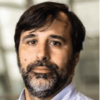
Luiz Paulo Assad
Laboratory of Computational Methods in Engineering, Federal University of Rio de Janeiro (LAMCE)
Technical Coordinator of the Environmental Modelling Centre at LAMCE
Luiz Paulo Assad has a degree in Oceanography from the State University of Rio de Janeiro, a master’s degree in Physical Oceanography from the University of São Paulo and a doctorate in Civil Engineering from the Alberto Luiz Coimbra Institute of Graduate Studies and Engineering Research. He is currently an adjunct professor in the Department of Meteorology at the Federal University of Rio de Janeiro and also a permanent professor in the Graduate Program in Meteorology of that department. Researcher and technical coordinator of the Environmental Modeling Nucleus of the Laboratory of Computational Methods in Engineering (LAMCE/COPPE) that represents the Rio de Janeiro AIR Centre Office. He is also a collaborating professor in the Civil Engineering Program at COPPE. He has experience in the field of Physical Oceanography, with an emphasis on oceanic computational modelling, acting mainly on the following themes: global and regional oceanic computational modelling, ocean-atmosphere interaction processes, oil dispersion modelling in the ocean, and analysis of environmental data.
Integration of Environmental Computational Modelling, Data Science and Digital Social Technology to support COVID-19 surveillance.
This presentation intends to synthesize and indicate how atmospheric, oceanographic and climate numerical computational models could be integrated to social and economic information using Data Science techniques and Digital Social technologies to support the challenges associated with COVID-19 surveillance and diffusion forecast.

Luiz Paulo Assad
Laboratory of Computational Methods in Engineering, Federal University of Rio de Janeiro (LAMCE)
Technical Coordinator of the Environmental Modelling Centre at LAMCE
Luiz Paulo Assad has a degree in Oceanography from the State University of Rio de Janeiro, a master’s degree in Physical Oceanography from the University of São Paulo and a doctorate in Civil Engineering from the Alberto Luiz Coimbra Institute of Graduate Studies and Engineering Research. He is currently an adjunct professor in the Department of Meteorology at the Federal University of Rio de Janeiro and also a permanent professor in the Graduate Program in Meteorology of that department. Researcher and technical coordinator of the Environmental Modeling Nucleus of the Laboratory of Computational Methods in Engineering (LAMCE/COPPE) that represents the Rio de Janeiro AIR Centre Office. He is also a collaborating professor in the Civil Engineering Program at COPPE. He has experience in the field of Physical Oceanography, with an emphasis on oceanic computational modelling, acting mainly on the following themes: global and regional oceanic computational modelling, ocean-atmosphere interaction processes, oil dispersion modelling in the ocean, and analysis of environmental data.
Social technology as a tool for disease tracking among vulnerable populations
The Observatory of Sustainable and Healthy Territories of Bocaina (OTSS) is an initiative that emerges from the partnership between the Forum of Traditional Communities of Angra dos Reis, Paraty and Ubatuba (FCT) and the Oswaldo Cruz Foundation (Fiocruz), supported by the National Health Foundation (Funasa) and Fiotec. The project was created with the aim of promoting Well Living, expanding and qualifying sustainable development in the traditional territories of the Bocaina region with the Caiçaras’s, Indigenous’s and Quilombo’s peoples.
With the perspective of territorialising the Agenda 2030 and promoting well-being through the development of sustainable and healthy territories, the OTSS has as its axes the promotion of social and environmental justice, focusing on:
territorial defense based on legal advice, advocacy and social control;
production of a georeferenced information base and data about the territory, including participatory methodologies such as Social Cartography;
ecological sanitation;
differentiated education;
incubator of social technologies;
agroecology; community-based tourism;
evaluation and territorial monitoring of the Sustainable Development Objectives of the United Nations Agenda 2030.
OTSS is present in more than 100 communities located in a region of exuberant socio-biodiversity, where unsustainable practices of development (real estate speculation, large enterprises, predatory tourism) jeopardise the rights of these peoples, the propagation of their way of life and the sustainability of the Bocaina territory.

Edmundo Gallo
Oswaldo Cruz Foundation (Fiocruz)
Coordinator of the Observatory of Sustainable and Healthy Territories of Bocaina (OTSS)
Edmundo Gallo has a medical degree from UFPA (1984). He is apecialist in Social Medicine from UFMG (1986), a Master in Public Health from Fundação Oswaldo Cruz (1991), and a Doctor of Science from Fiocruz (2009). He was Municipal Secretary of Health of Belém-PA (1997-1999), Secretary-General and President of the National Council of Health Secretariats (1997-1999), Director of Investments and Strategic Projects of the Ministry of Health (2002-2005) and a consultant to international bodies and government agencies.
Edmundo Gallo has worked in the area of Public Management, with emphasis on Planning and Strategic Management and Sustainable Development and Health Promotion. He is a Principal Researcher at the Oswaldo Cruz Foundation, Senior Researcher at the University of Coimbra – Center for Functional Ecology and General Coordinator of the Observatory of Sustainable Territories and Healthy from Bocaina.
The role of mobile technologies in track and tracing strategies
Digital contact tracing applications have appeared for the first time in the beginning of 2020, with COVID-19, to complement traditional tracing in a galloping outbreak that quickly became a world-wide pandemic. Testing and tracing are central to break the chains of contagion of any infectious disease.
The “manual” contact tracing protocol is, however, highly dependent on people’s memory, and it is resource and time consuming. Intuitively, a digital proximity tracing protocol that could be run by any individual would easily scale out and contribute to the completeness and efficiency of the process. This is the aim of the many digital contact tracing apps being deployed and whose efficacy will need to be assessed in a few months. This talk will present Europe’s take on digital contact tracing with emphasis on the Portuguese system; technology, system’s architecture, data protection, usability and evaluation.

Rui Oliveira
University of Minho
Associate Professor at the Department of Informatics of University of Minho, Director of the Minho Advanced Computing Centre
Rui Oliveira is an Associate Professor with habilitation at the Department of Informatics of University of Minho, director of the Minho Advanced Computing Centre, Co-Director of the UT Austin Portugal program, and member of the board of INESC TEC. He obtained a PhD degree in Computer Science from the École Polytechnique Fédérale de Lausanne in 2000. His main research contributions have been in the field of fault-tolerant distributed agreement and epidemic multicast algorithms and in the conception, development and assessment of dependable database systems. He coordinated the H2020 SafeCloud project on secure processing in the Cloud and the FP6 GORDA project on open database replication, two previous national projects on scalable dependable databases, ESCADA and StrongRep, and the U. Minho team at the FP7 CumuloNimbo and LeanBigdata projects.
Rui Oliveira counts over 100 research papers on large-scale and dependable distributed systems, and has served on the programme committee of several highly reputed conferences. He has been PC co-chair of IFIP DAIS and IEEE SRDS, General chair of SRDS and ACM Eurosys. Rui Oliveira serves on the Steering Committees of SRDS, Eurosys, Global CENTRA and the Atlantic Interactions Research Centre.
Keynote speaker
ICT
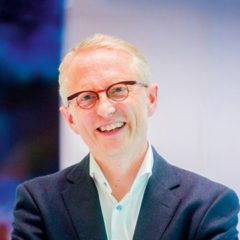
Speakers
ICT
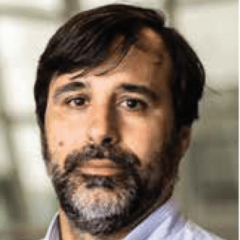
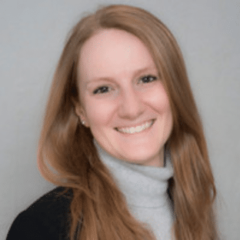
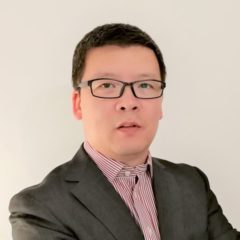
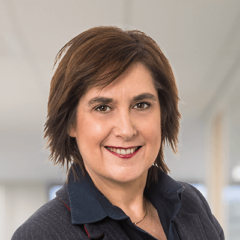
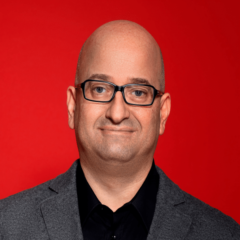
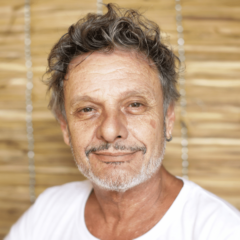
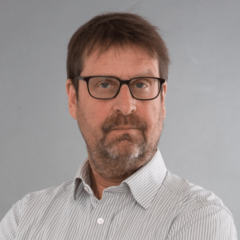
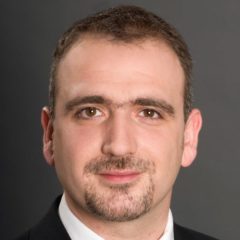
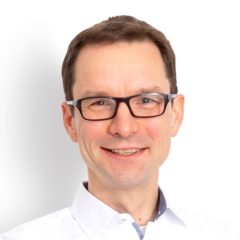
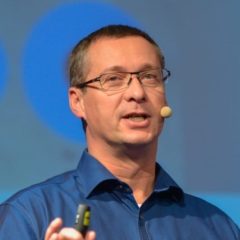
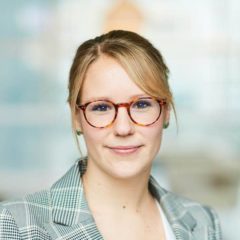
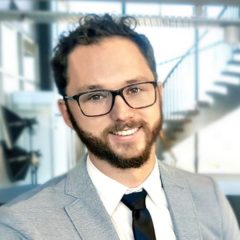
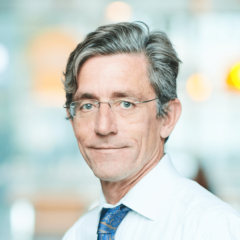
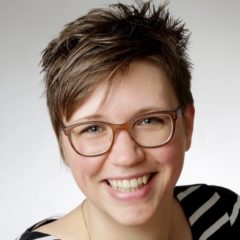
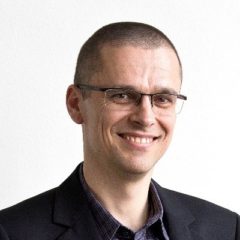
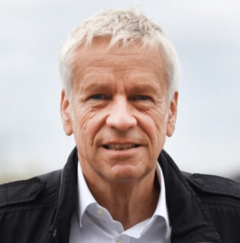
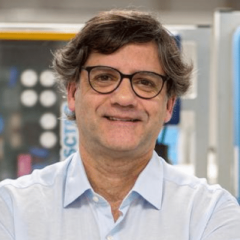
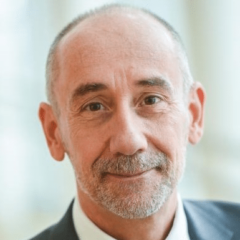
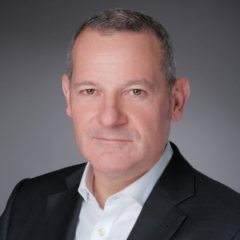
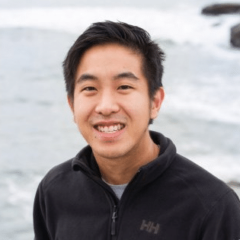
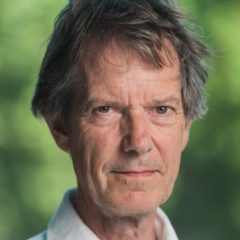
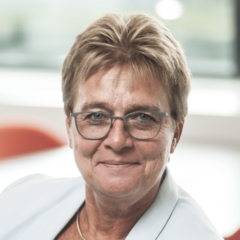
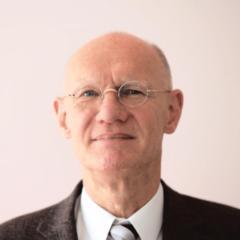
Deep dive sessions
Making digital transformation work for the benefit of all

Digital technologies for lifelong learning
As the capacity to innovate is increasingly becoming a key driver of economic and social development, employees continuously need to adapt to dynamic and fast-changing working conditions. Occupational and technical skills are, therefore, no longer sufficient. In addition to job-specific technical skills, employees need to have strong transversal and foundation skills. These include the skills to learn fast, adapt to change and manage business. Enterprises need to foster lifelong learning, making the best possible use of what digital technologies have to offer.

Technologies for pandemic control and social resilience
During the COVID-19 pandemic, partnerships between communities and scientists were set up to develop initiatives focused on increasing the protection of vulnerable populations and implementing active COVID-19 surveillance using innovative methodologies such as geoprocessing, big data and social cartography. At the same time, health professionals used telehealth, robotics, and artificial intelligence tools to reach out to patients at home or in the isolation areas of the hospitals, making it possible to reach out to distant communities while save precious resources.

Digital technologies and novel data sources
Circular business models have a stronger need for data compared to linear ones. Digital technologies, on the other hand, enable access to a broad range of novel data sources and provide transparent insights into the value chain. That creates opportunities for new business approaches and circular management of materials and products. We need to think beyond current needs, however, exploring options enabled by digital technologies such as artificial intelligence, big data, blockchain, and earth observation.
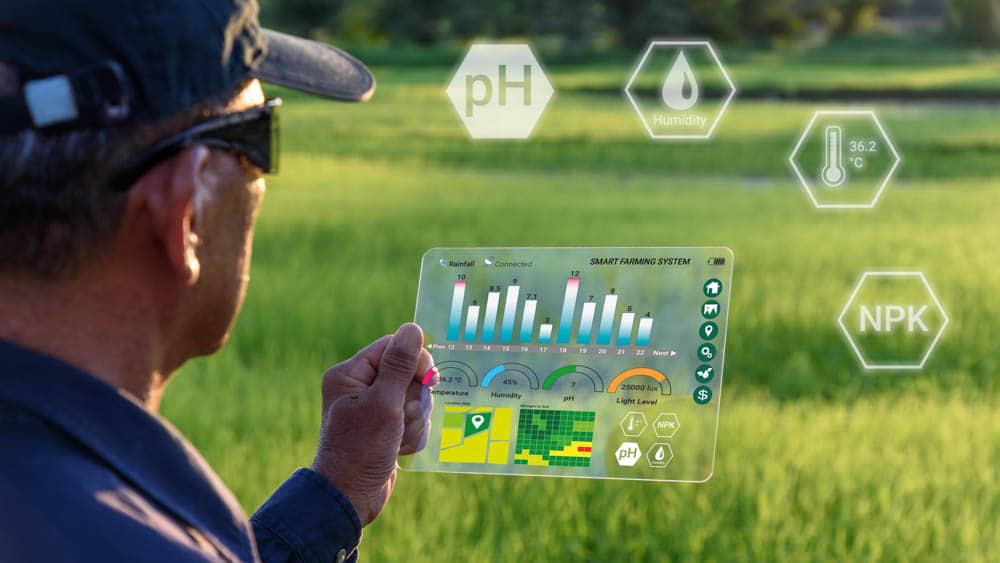
Digital twins of biological cycles
Digital technologies are being applied already in farming and biological material cycles. Examples of such applications need to be explored and discussed in more detail to understand how they could be transferred to the technological cycle of materials. In many cases, discussions about circular economy focus on the technological cycle while forgetting about the biological cycle. That needs to be reversed, exploring how digitalisation can link the two wings of the butterfly diagram.

Connecting digital and circular strategies
As functional electronics integrate digital technologies with cognitive functions, they enable a shift from purely physical to functional integration. Applications include tracking and tracing of products and information collection on the use and wear of materials. That provides the technological basis for new circular business models. Meanwhile, we also need to consider the impact of functional electronics on product chains, in terms of energy and resource needs, recyclability, and dispersion of materials.

